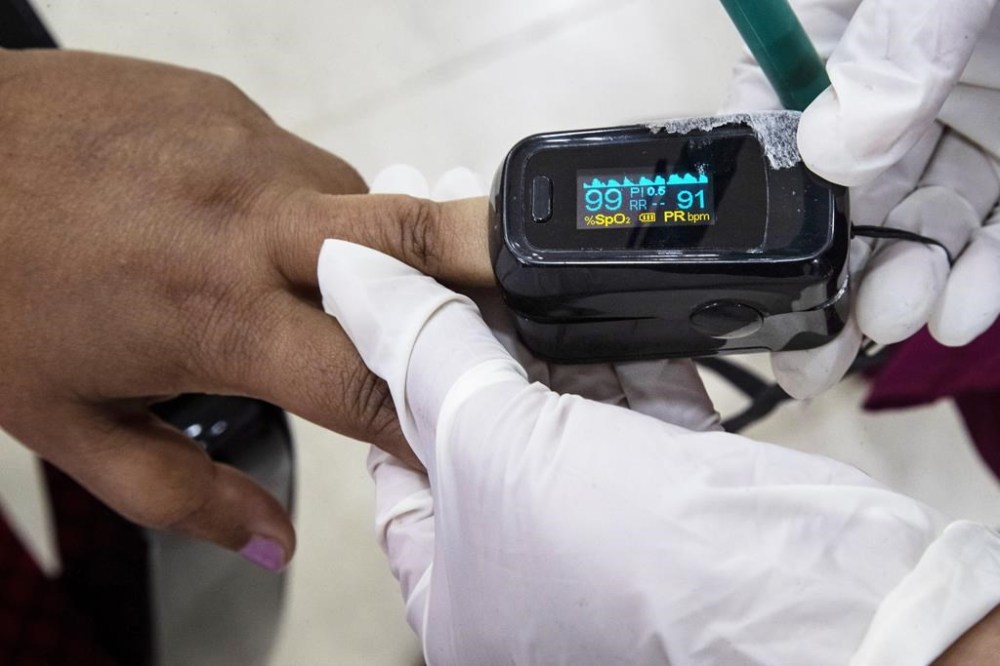Pulse oximeters may misread oxygen levels in people of color. The FDA wants to change that
Advertisement
Read this article for free:
or
Already have an account? Log in here »
To continue reading, please subscribe:
Monthly Digital Subscription
$1 per week for 24 weeks*
- Enjoy unlimited reading on winnipegfreepress.com
- Read the E-Edition, our digital replica newspaper
- Access News Break, our award-winning app
- Play interactive puzzles
*Billed as $4.00 plus GST every four weeks. After 24 weeks, price increases to the regular rate of $19.00 plus GST every four weeks. Offer available to new and qualified returning subscribers only. Cancel any time.
Monthly Digital Subscription
$4.75/week*
- Enjoy unlimited reading on winnipegfreepress.com
- Read the E-Edition, our digital replica newspaper
- Access News Break, our award-winning app
- Play interactive puzzles
*Billed as $19 plus GST every four weeks. Cancel any time.
To continue reading, please subscribe:
Add Winnipeg Free Press access to your Brandon Sun subscription for only
$1 for the first 4 weeks*
*$1 will be added to your next bill. After your 4 weeks access is complete your rate will increase by $0.00 a X percent off the regular rate.
Read unlimited articles for free today:
or
Already have an account? Log in here »
Hey there, time traveller!
This article was published 06/01/2025 (268 days ago), so information in it may no longer be current.
WASHINGTON (AP) — Makers of medical devices that quickly measure oxygen levels in the blood would have to gather extra data to show that their products work for patients of color, under a new federal proposal released Monday.
The Food and Drug Administration’s recommendations apply to pulse oximeters, which are clip-on devices used in hospitals and medical clinics to ensure patients are getting enough oxygen. The FDA said it wants companies to conduct larger studies and include more patients from different racial groups.
By snapping a device onto a finger and then sending two wavelengths of light into the skin, the oximeter measures how much of the light is absorbed and estimates how much oxygen is flowing through the blood.

Oximeters were a critical part of emergency care for patients with COVID-19 during the pandemic. But several studies have suggested that darker skin pigmentation can sometimes throw off the accuracy of readings. In 2021, the FDA warned doctors about potential inaccuracies with oximeters after a study found the devices tended to overestimate Black patients’ oxygen levels, which could lead to delays in getting treatment and increased risks of death.
The issue has become a prominent example of the potential racial biases of medical technology, leading to multiple meetings and studies by FDA regulators since 2022.
The FDA’s draft recommendations, which are not binding, would make several changes to how companies are expected to test their devices, including:
— Enrolling at least 150 patients of different skin tones in clinical studies;
— Including at least 25% of patients with darker skin complexion in each study, up from 15% previously;
— Evaluating pigmentation of every study participant using at least two different methods, one based on a researcher’s evaluation and another based on scientific, light-based measurement of melanin levels in the skin.
The FDA recommendations apply to only professional oximeters used in hospitals, doctor’s offices and other medical settings. The government doesn’t regulate the vast majority of over-the-counter oximeters, most of which are considered “general wellness” devices by the agency.
The guidelines wouldn’t eliminate older devices currently used by doctors. But the FDA makes clear it expects to see new diversity data from manufacturers when requesting changes or updates to older oximeters.
Monday’s announcement is only a draft. The FDA said it will take public comments on its proposal for 60 days before beginning work on a final version.
___
The Associated Press Health and Science Department receives support from the Howard Hughes Medical Institute’s Science and Educational Media Group. The AP is solely responsible for all content.

